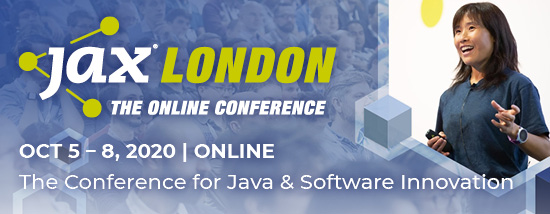A research study by The National Center for Women & Information Technology showed that “gender diversity has specific benefits in technology settings,” which could explain why tech companies have started to invest in initiatives that aim to boost the number of female applicants, recruit them in a more effective way, retain them for longer, and give them the opportunity to advance. But is it enough?
Four years ago, we launched a diversity series aimed at bringing the most inspirational and powerful women in the tech scene to your attention. Today, we’d like you to meet Ekaterina Almasque, a General Partner at OpenOcean.
Today’s Woman in Tech: Ekaterina Almasque, General Partner at OpenOcean
 Ekaterina Almasque is a General Partner at OpenOcean. She invests in unique technologies enabling our future data-driven economy, such as artificial intelligence, quantum computing, data infrastructure and more.
Ekaterina Almasque is a General Partner at OpenOcean. She invests in unique technologies enabling our future data-driven economy, such as artificial intelligence, quantum computing, data infrastructure and more.
Before joining OpenOcean, Ekaterina was a Managing Director at Samsung Catalyst Fund in Europe, Samsung’s multistage investment arm focusing on cutting edge technologies. She led investments across Europe in companies such as GraphCore, Mapillary, AIMotive, Sentiance, Quobyte, as well as several venture funds.
When did you become interested in technology?
My family was very much into tech, with my father being a professor of robotics and my mother an executive in a high tech enterprise. No wonder technology was a topic of conversation at dinner! This led to me going to one of the top mathematical & science high schools in the country, joining a much broader mathematical community of excellent minds, and choosing to study technology at university.
How did you end up in your career path?
I started a few ventures when I was 17 years old, including software start-ups. My path then meandered between education and working in corporate.
I went to Dresden University as an exchange student, where I was offered a scholarship, and then spent a number of years at corporates like Siemens working on cutting-edge technologies. Eventually, IMD Business School was instrumental in helping me find my true calling in the Venture Capital industry.
Did you receive support from your family and friends?
I was so lucky that both my parents were great role models, and they were always very passionate about science, new technology frontiers, taking risks and entrepreneurship. I have also been lucky to meet so many great people on my way, including my friends and mentors in academia, companies I worked for, and also the larger ecosystem.
Did someone ever try to stop you from learning and advancing in your professional life?
I’ve been fortunate to have only ever had encouragement all my life. At Siemens for example, I was placed in the top talent pool of ‘high potentials’, where I received several weeks of training per year for developing business judgement and best management practices. Once I had decided to attend IMD Business School, Siemens fully supported and offered me multiple opportunities to rejoin the company, including my dream job at Siemens Venture Capital in the US.
Breaking into the VC industry from 2006 to 2011 was not straightforward, and I had to overcome multiple challenges. It’s hard to identify the root of these challenges, but I can see that the path definitely could have been faster and easier. However, I do not regret taking it, and I am happy mentoring other women, especially those with technical backgrounds and good business judgement, to join our industry.
I do what I love most: working with outstanding entrepreneurial teams and helping nurture successful technology companies to shape the foundation of our future data economy.
A day in Ekaterina’s life
I am a General Partner at OpenOcean, a VC firm investing in Series A across Europe in technology solutions for the future data economy. I do what I love most: working with outstanding entrepreneurial teams and helping nurture successful technology companies to shape the foundation of our future data economy. We provide strategic guidance, business development, key hires, and ensure that sufficient capital for growth is available for our portfolio companies.
What are you most proud of in your career?
I’m most proud of my work supporting the formation and fast scale of companies such as GraphCore and IQM; and my work fostering new software architectures (such as P2P, APIs etc) that enable most of the services as we know them today – for example, I led Java standardisation. I also hold several patents, and launched a software business while still at university.
Why aren’t there more women in tech?
There is no simple answer. Unfortunately, there are still too few women studying science and technology, and this is a problem we need to address in the early years of education and as part of wider societal reform.
We’ve made considerable progress over the last 20 years or so when it comes to workplace equality, but we must make sure that we are supporting women to enter tech professions from a young age.
Could you name a few challenges (or obstacles) women in tech face?
Unconscious gender biases within society do not help, and I am proactively working to advocate for more girls to take on “challenging” subjects. Women are naturally good at connecting various topics, such as bringing linguistics with mathematics (NLP, which is needed for building voice interfaces, for example). All new areas of technology advancements are multidisciplinary – areas where women naturally can figure out solutions and see through complexity.
Would our world be different if more women worked in STEM?
I do believe that female scientists, software architects, technology entrepreneurs and investors bring a very unique value and point of view. Overall, women would help to build a more balanced digital society with a much longer-term view on how these solutions can create positive impacts. Diverse problems also require diverse perspectives to solve them, and this extends to many other groups beyond just women.
I am passionate about supporting, developing, and investing in women in my work at OpenOcean, and I have seen firsthand the talent and success stories that can come from female-led companies.
Mentoring is one of the best methods we have for inspiring the next generation of powerful women in tech
The discussion about diversity is gaining momentum. How long will it take to see results from the current debate?
We’re already seeing results in certain areas and geographies. Still, change in the early education and engagement of girls in science and technology requires much more work – structural changes are needed and this can be a lengthy process. However, there are changes we can all make right now, including fighting against negative bias when we encounter it, and we can all work to lift up, champion, and invest in the women in our own workplaces.
What advice (and tips) would you give to women who want a tech career?
First, not to be discouraged by perceptions. Second, follow your dreams. Third, find people who believe in your dreams and let them help you. Mentoring is one of the best methods we have for inspiring the next generation of powerful women in tech, and it’s worth reaching out to those in your network to see if they can offer advice and guidance from their experience – many will be happy to help!
More Women in Tech:
- Women in Tech: Priyanka Shete, Senior Software Engineer at adesso
- Women in Tech: Jen Langdon, Director of Engineering, Cloudflare
- Women in Tech: Greta Fest, Frontend Software Engineer, Experience Technology, Publicis Sapient
- Women in Tech: Viktoryia Verasava, TypeScript Developer at McMakler
- Women in Tech: Anke Sperger, internal sales representative at Axis Communications GmbH
For even more Women in Tech, click here
The post Women in Tech: “Diverse problems also require diverse perspectives” appeared first on JAXenter.
Source : JAXenter






















